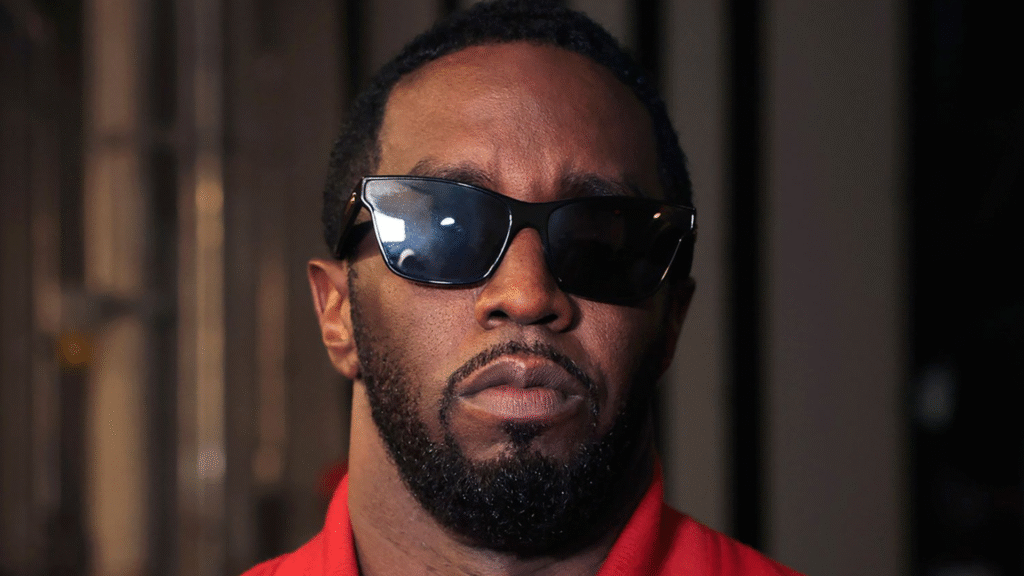
Sean “Diddy” Combs was found guilty Wednesday of two charges of transporting women for prostitution but was acquitted of more serious charges, including racketeering conspiracy and sex trafficking.
The verdict was delivered on the third day of jury deliberations in a high-profile federal trial that exposed disturbing allegations of sexual abuse, violent outbursts, and a dark underworld behind Combs’ once-glamorous image. He now faces up to 20 years in prison—10 years for each prostitution-related charge—at sentencing.
Combs, 55, was cleared of three other federal charges, including the accusation that he ran a criminal enterprise and used force, fraud, or coercion to traffic women. Prosecutors had sought a conviction on all counts, which could have led to a life sentence.
Following the verdict, Combs visibly broke down—placing his hands together in prayer, kneeling, and resting his head on a courtroom chair as his family applauded the partial acquittal.
His attorney, Marc Agnifilo, immediately requested his release from the federal detention center in Brooklyn, where Combs has been jailed since last fall. A $1 million bond and home confinement in Miami were proposed. The judge said a decision on bail would come after reviewing arguments from both sides.
The verdict caps a stunning downfall for the former hip-hop icon who built a billion-dollar empire through music, fashion, and media. Once hailed as a cultural powerhouse, Combs now holds the title of convicted felon, facing not only prison time but also numerous civil lawsuits alleging rape, sexual assault, and abuse.
The seven-week trial in New York federal court featured damning testimony from nearly three dozen government witnesses, including ex-girlfriends, former employees, and music industry insiders. Prosecutors alleged Combs used his fame and fortune to abuse women, coerce them into drug-fueled sex acts, and silence them through threats, blackmail, and bribery.
Central to the case were testimonies from R&B singer Cassie Ventura—Combs’ longtime ex-girlfriend—and a second accuser identified only as “Jane.” Both women testified about being manipulated, drugged, and exploited in what were referred to as “freak offs”—staged sex parties involving other men and drugs. Prosecutors argued these encounters were not consensual, but orchestrated under threats and deception.
Video evidence played during the trial included surveillance footage from a Los Angeles hotel, showing Combs violently attacking Ventura in 2016 after she tried to leave one of these events.
“If there was even one time where she participated because of his lies, threats, or violence, that makes it trafficking,” Assistant U.S. Attorney Christy Slavik told jurors in her closing arguments.
The defense, however, claimed Combs lived an “unconventional” lifestyle, but denied criminal intent. Agnifilo argued the relationships were consensual, if dysfunctional, and that prosecutors overreached by trying to frame his personal life as criminal conspiracy.
“Yes, he committed domestic violence,” Agnifilo admitted during trial. “If that were the charge, he [Sean ‘Diddy’ Combs] would have been found guilty. But racketeering and sex trafficking? That’s not what happened.”
Despite the not-guilty verdicts on the most serious counts, the guilty findings mark a permanent stain on Combs’ legacy. And legal trouble is far from over. In addition to criminal sentencing, he still faces a slew of civil lawsuits from multiple women claiming sexual misconduct spanning decades.
Though Combs remained silent throughout the trial and chose not to testify, the evidence—including graphic videos, financial records, and emotional witness statements—painted a devastating picture of power, exploitation, and unchecked abuse behind the music mogul’s public image.
The sentencing date has not yet been scheduled.




